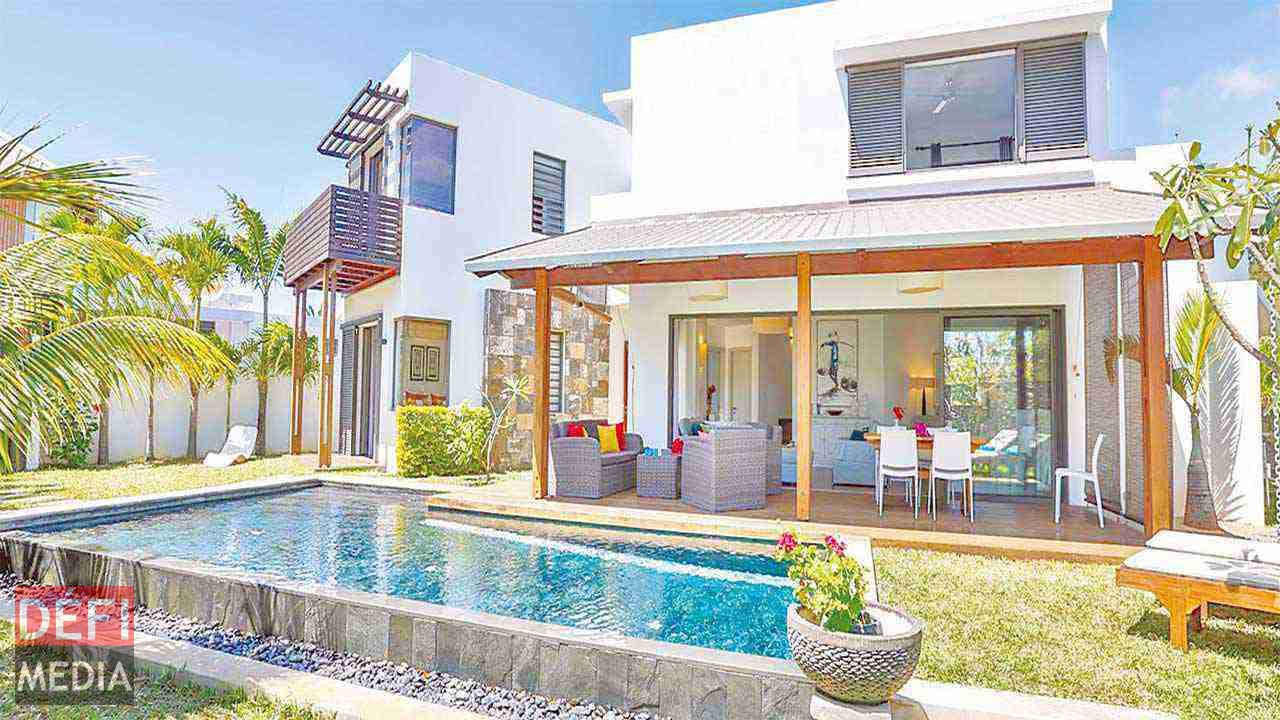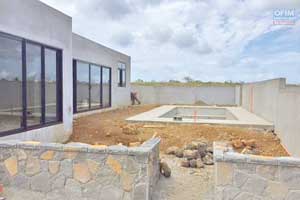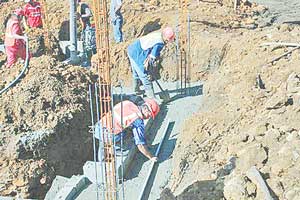
The government has introduced new measures to counter the downturn in the real estate sector. Property prices have increased over the past few years and many are finding it difficult to get a first foot on the property ladder. The Budget 2016-17 aims at addressing two issues: giving a new boost to the construction sector and improving home ownership.
Publicité
The price of land has increased by nearly three-fold over the past ten years in some regions. To improve home ownership, the Minister of Finance Pravind Jugnauth has announced new measures in his budget. These include a full exemption from registration duty to a Mauritian citizen acquiring a new house or a new apartment during the period 1 September 2016 to 30 June 2020 for an amount not exceeding Rs 6 million.
Secondly, a first time buyer will now be allowed to buy bare residential land, free of registration duty, on the first Rs 2 million, provided the acreage does not exceed 20 perches. Finally, an increase in the refund of VAT from Rs 300,000 to Rs 500,000, on submission of relevant receipts, regarding the construction of a new dwelling or acquisition of a newly built apartment. This is applicable to only households with aggregate income not exceeding Rs 2 million per annum.
According to economist Vishal Rughoobar, some of the measures such as exemption of tax, will allow young professionals to buy a decent house. “The property sector is divided into various segments. Not all social classes can afford a decent housing. The higher classes can easily buy themselves luxurious houses. There has always been a demand for housing by the middle class. Now the demand can be met.”
He further explains that in certain regions, where expats tend to buy houses or land, the price is exorbitant making it impossible for locals to enter the property market there. The announced measures will allow Mauritians to get a foot in. “Nevertheless, it is a vast sector and buyers should be more cautious.”
Housing projects at the Mauritius Housing Company
The Mauritius Housing Company (MHC) has a number of housing projects in the pipeline. Rajeev Abeeluck, architect at the MHC, explains that following a two-months market survey on demand, the housing project at Le Hochet, Terre Rouge is moving ahead. “There are 117 housing units on 7.2 acres of land at Le Hochet namely individual, semi-detached houses and apartments. We have received very positive responses. For example, for 49 individual houses we have received 75 requests and for 50 semi-detached houses, we have received 50 offers. So, based on the survey and the fact that building permits have been granted, we are going forward with the construction.” The architect adds that the NHC is also working on a project on 2.5 acres of land at La Tour Koenig and a market survey will be launched soon. “There is also the joint venture between the MHC and the State Land Development Company (SLDC) for a mixed development project on 100 acres land at Highlands.
Will foreigners drive up prices?
One measure announced in the budget allows foreigners to buy appartments, which they could not do previously. Economist Virendra Polodoo claims that allowing foreigners to buy residential properties has started to raise eyebrows among citizens, economists and even politicians about the probable impact it will have on house prices for the average Mauritians.
 “There is a general belief that some Mauritians, especially potential new home owners, will find it increasingly difficult to fulfil their dreams of home ownership, as property prices might take a steep rise. In countries that have adopted this practice, such as Australia and Vietnam, house prices are so high that citizens have been driven out of the property market. However, for Mauritius, I believe that purchase of properties by foreigners will push up the prices for particular market segments, especially high quality new apartments which may over time drive Mauritians out of the market in favour of foreigners.”
“There is a general belief that some Mauritians, especially potential new home owners, will find it increasingly difficult to fulfil their dreams of home ownership, as property prices might take a steep rise. In countries that have adopted this practice, such as Australia and Vietnam, house prices are so high that citizens have been driven out of the property market. However, for Mauritius, I believe that purchase of properties by foreigners will push up the prices for particular market segments, especially high quality new apartments which may over time drive Mauritians out of the market in favour of foreigners.”
According to the economist, we need to find out who will have the right to buy properties. “Are they foreigners who have interests in investing here? I guess this is the intention of the government to encourage potential investors to stay here for long and hence encourage them to be home owners as well. If the latter is the case, then, I opine that foreign buyers will make house ownership become more reasonable. This is because those investors, through their investment can help to reduce unemployment, encourage more construction, thereby increasing supply of houses. Hence by increasing supply, it is not proper to say that encouraging foreign buyers of residential properties will make housing prices become out of reach for Mauritians.”
Fees to be incurred
Once you have the funding, do not forget to make provision for the following fees and taxes:
- Property broker fees is 2% + VAT on sales/ purchases.
- Notary fees is 2% on purchases.
- Registration fees is 5% on purchases and nil for first time buyer.
- Land transfer tax is 5% on sales.
- Other fees vary for pin number, utilities clearance/connection, BLUP, professionals etc.
- Registration of a property depends on notary and can take around one month to get the new title deeds.
Another reason regarding how Mauritians will not be affected is because foreigners will normally look for high end properties found in regions where prices are already high such as in the West and this would not significantly affect prices elsewhere. “The level of foreign direct investments should be extremely high and all investors should buy a property so that it may affect local house prices significantly. Note that foreign buyers shall operate at a different price bracket from local first home buyers and buy different types of properties.
 So the noise surrounding the impact of foreigners owning property in Mauritius is inaccurate. It is not property ownership by foreigners that will drive prices upwards and make it hard for local residents to own property. Other factors will with time contribute to this. For example, population growth and higher economic growth, Mauritians’ willingness and ability to obtain housing loans due to lower interest rates and competition in the banking industry, stamp duty and tax arrangements, high development costs for land etc.”
So the noise surrounding the impact of foreigners owning property in Mauritius is inaccurate. It is not property ownership by foreigners that will drive prices upwards and make it hard for local residents to own property. Other factors will with time contribute to this. For example, population growth and higher economic growth, Mauritians’ willingness and ability to obtain housing loans due to lower interest rates and competition in the banking industry, stamp duty and tax arrangements, high development costs for land etc.”
Kevin Vidal, from Le Manoir Immobilier: “People are always on the lookout”
Kevin Vidal from Le Manoir Immobilier says that the property sector is faring well currently. “People are always looking out for properties of various types. We have noticed a great demand for apartments in recent years. However, we must be careful that if there are too many apartment projects launched, there will be an excess of properties (apartments) on the market and this will not be positive.” Regarding the evolution of real estate, Kevin Vidal states that it has been very positive for the last ten years.
“Regions like Highlands, Flic en Flac, Tamarin, Grand Baie among others, which were not on demand before, have now a great market demand. Given this the value of the land and the price has seriously risen in those regions. Regions like Moka where interesting projects are cropping up is also on high demand.” However he explains that prices now vary according to the area. “For example in Albion, a ‘toise’ can be at Rs 15,000 in an area and Rs 10,000 in another area in the same region.”
However, making that first purchase carries certain risks, as explained by managing director of Cirusco Investments Ltd Yash Sharma. Anyone who decides to acquire a land or to build a house needs to plan as per their budget before engaging in any transaction. Once decided about funding their property either through savings or through loans, they may start their search in newspapers, internet or media.
“The best way is to contact a property broker who has more experience in supporting and advising clients. But to they should be careful with unlicensed brokers who can fool people. Most licensed property brokers advertise their product on websites/newspapers/onsite. A property broker needs to be qualified/well experienced in properties act including financial funding, building construction and updated with modernisation. In context of buying a plot to build a house, the same property broker can advise or recommend a professional building contractor. We have to be careful here also in selecting because we have many unregistered and unqualified entrepreneurs who can take the contract but never complete the construction due to lower rate or low experience,” he advices.
 Financing options: Housing Empowerment Scheme
Financing options: Housing Empowerment Scheme
The middle-income households/ single individuals earning up to Rs 50,000 per month may avail of a loan for constructing or purchasing a housing unit. Under this scheme, you may avail of a loan amount up to Rs 2.5 million for a maximum floor area of the residential building or apartment of 1,500 sq ft.
MCB: Main features
- Up to 95% financing
- Minimum contribution of 5% by borrower
- No capital repayment for the first 2 years (moratorium period)
- Maximum loan of Rs 2.5 million for a house or apartment
- Rate of interest at Repo Rate + 2.5% p.a.
- VAT exemption up to Rs 300,000 is provided on the cost of construction or acquisition
SBM: Main features
- Minimum loan amount of Rs 200,000
- Maximum loan amount of Rs 2.5 million
- Floating interest rate of 7.15% per annum (Repo Rate +2.5%)
- Up to 95% financing of the cost for the construction or purchase of a residence
- Contribution of 5% as minimum down payment
- The repayment period lasts for maximum 30 years.
- A maximum of 2 years moratorium on capital repayment
- 50% discount on legal and processing fees (limited offer)
- Open to both salaried SBM and salaried non-SBM customers
- Life assurance cover to protect your family in case of permanent disability or death of borrower.
First time purchase: Avoid the pitfalls
Yash Sharma outlines the following steps to buy a house whether a new or old building:
- Ownership details (name/address/contact)
- Property details (type and date of construction, area of building/land, place, location, surrounding, any mortgage),
- Verification of documents (title deeds, site/location plan, pin number, building and M&E plan, BLUP, valuation report)
- Design/structural/architecture of property (setback around building with neighbourhood and road, height of building, dimension of rooms/doors/windows/staircases, Electrical/plumbing/sanitary, Flooring types, Openings materials, Rendering/painting, Accessories/fittings)
- Defects in construction/materials (any cracks in block walls, roofs, columns, beams, grade of building materials/accessories/fittings)
- Repairs/maintenances (list of damages on property)
- Valuation of property (surrounding land value and building construction cost)
After analysing and gathering the above, if the client is satisfied with the property, he can proceed with the purchasing by contacting a notary who will give a checklist for required papers etc. If the property is to be bought with funds that have been saved, the time frame can be 2 weeks to 3 weeks otherwise through bank loan, it can be 6 weeks. Similarly for buying a plot for construction, the client should go partly as above but by considering the zoning of the plot (residential/agricultural land) for BLUP.
Once the plot has been purchased, the client should contact a building designer or architect depending on building area to draw a plan for permit which can take from 6 weeks to 8 weeks in relation to different authorities clearance, after which a building contractor to be contacted for a quotation. Then after satisfaction, the construction can begin and will last from 3-5 months depending of building area.

Notre service WhatsApp. Vous êtes témoins d`un événement d`actualité ou d`une scène insolite? Envoyez-nous vos photos ou vidéos sur le 5 259 82 00 !





















